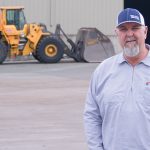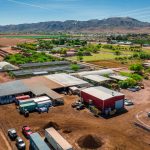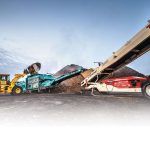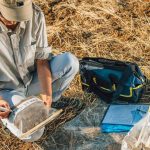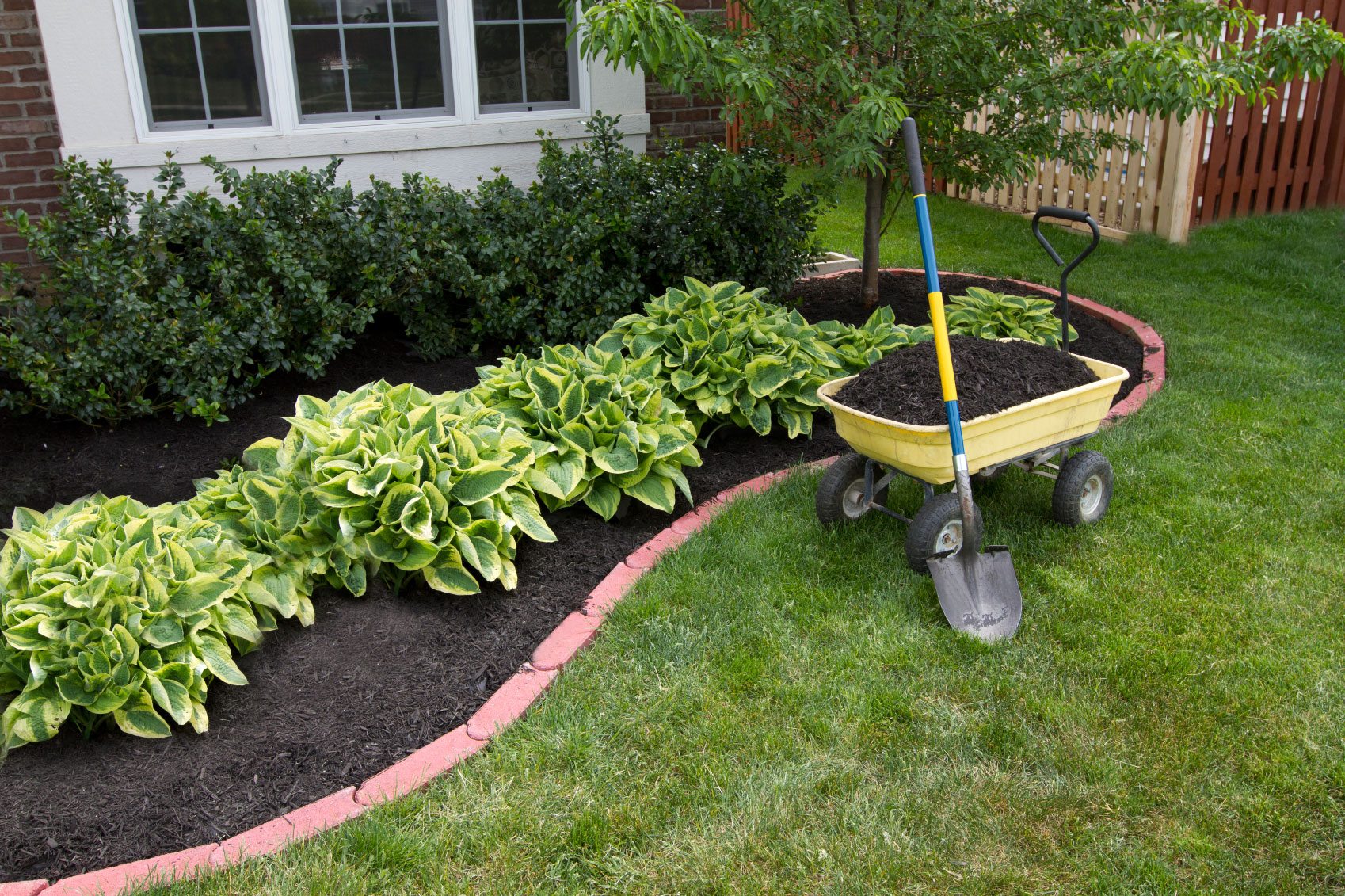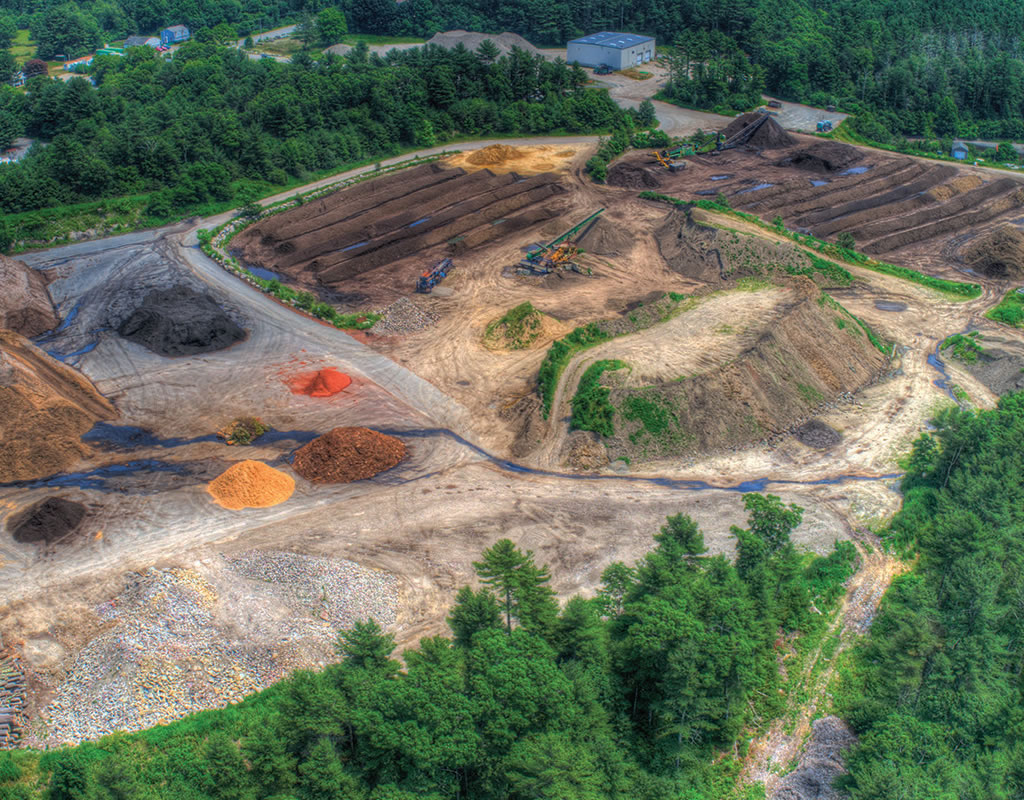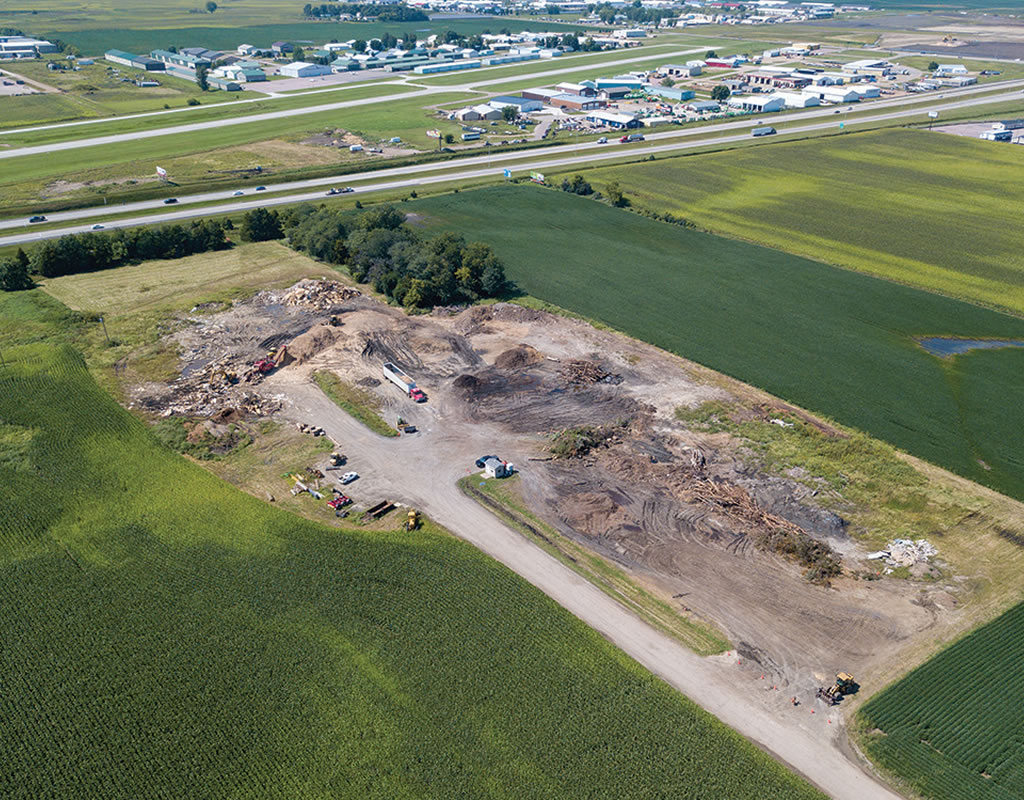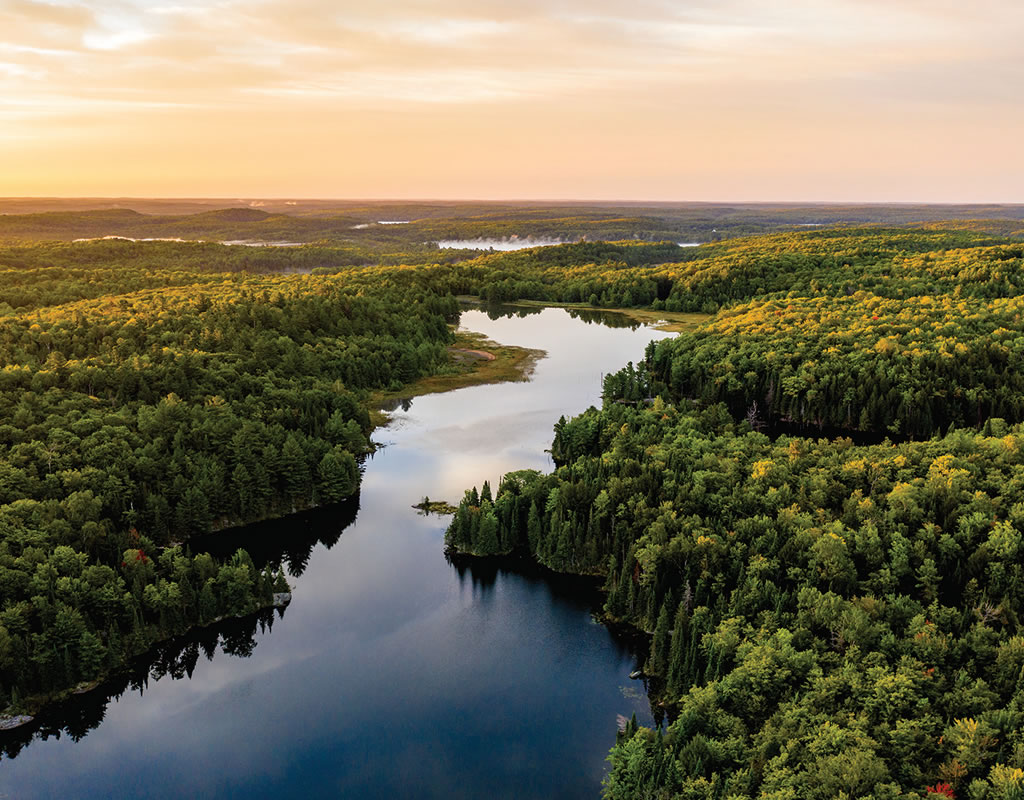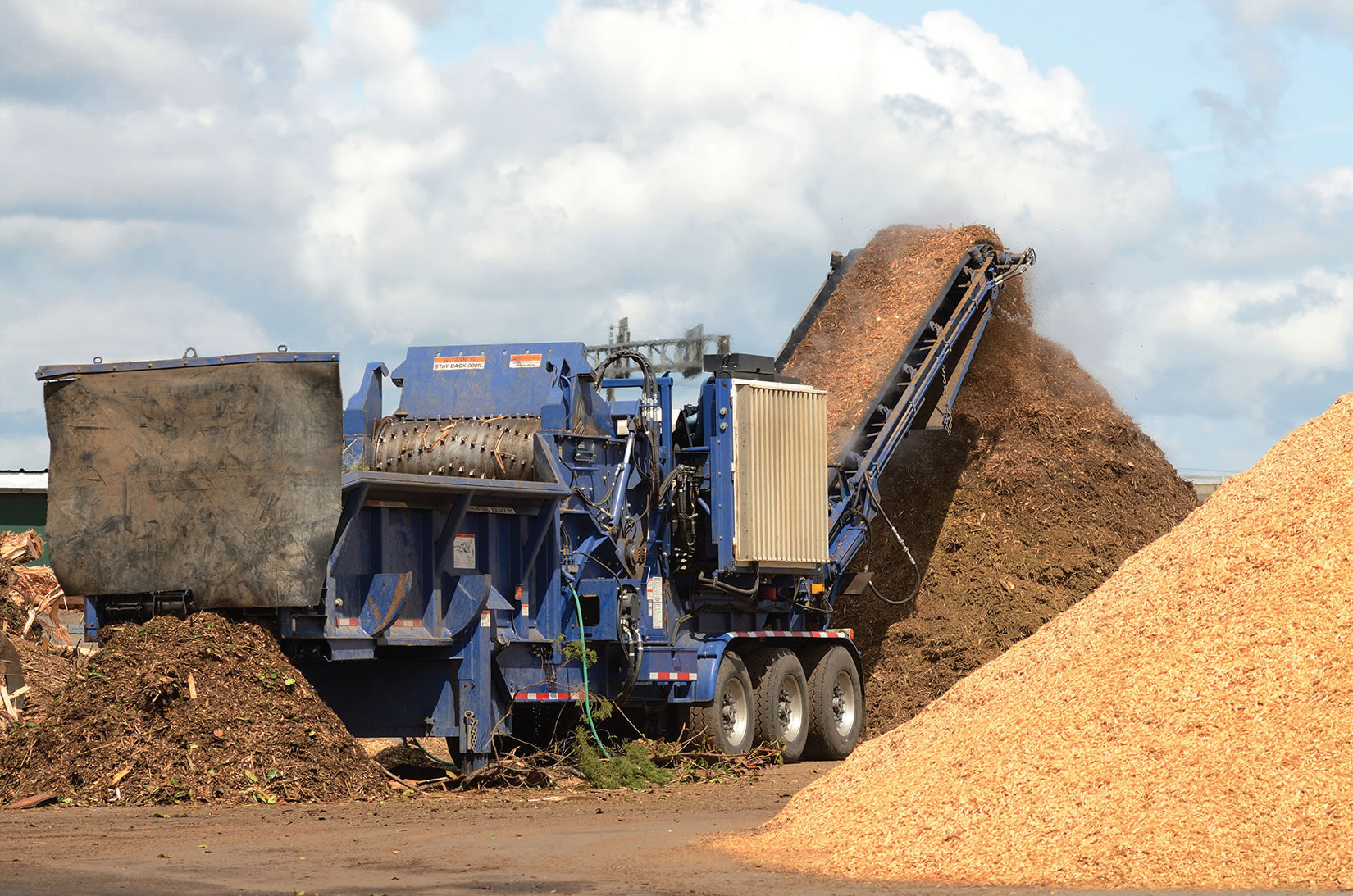By P.J. Heller
If someone was to co-opt the Burger King slogan of “Have It Your Way,” it would likely be the crew at Full Circle Soils & Compost.
Not content to produce just a standard compost that can be marketed to customers, Full Circle offers a complete menu of items that can be added to compost to create a blend geared specifically to a particular soil type.
“We are 100 percent focused on the actual growability and usefulness and efficacy of the end product by not just making compost, but making compost with minerals and nutrients that work correctly,” explains Cody Witt of Full Circle.
Witt sounds more like a master chef whipping up recipes of compost blends from the company’s pantry than the part owner and main site manager of a 40-acre compost facility in Carson City, NV.
“We have very specific recipes for the compost itself with very specific ratios of what materials go into each pile based on the compost we’re making,” he says. “After that, we have a pantry of minerals and nutrients that we would add, again for our product line and for custom soil amendments that we would make.
“We’re kind of the chef of the compost industry, where we take a large amount of our time figuring out what’s the best product and usage for every specific project were working on for the best growth . . . from landscape to turf to garden to agriculture production to food production.”
The concept for the compost recipes started with Witt’s father, Craig Witt, a fourth generation Nevada dairy farmer. He began seriously looking into soil nutrient density after becoming concerned about a decrease in overall crop growth and milk production in cows on lands typically treated with straight manure and chemical fertilizers.
In the mid-1980s, Craig Witt began making some compost for his farm and in 1997 launched Full Circle to create large scale composting for the 500-acre farm. Before long, people in the area began coming to the farm to purchase his compost. In 2003, Full Circle moved to a new location in Carson City and began its composting operation one year later.
The company has done intensive soil analysis profiles along the eastern Sierra Front, which includes northern Nevada and the Lake Tahoe area. The area stretches about 200 miles from the compost facility.
“We have one of the largest databases of northern Nevada-eastern Sierra Front soil tests,” Cody Witt says. “We have more than 3,000 profiles done over the last 27 years. From that, the consumer product line started to get very intensive. We started blending up to 20 different organic soil amendment into the compost.”
Full Circle encourages its customers of any size to submit a soil sample to International Ag Labs in Fairmont, MN. Full Circle then interprets the results and provides recommendations on how to improve soil health. Customers can also arrange for Craig Witt to visit their site, take a soil sample for the lab and provide more detailed recommendations, including information on creating what Full Circle says is “a custom blend to address all of your soil’s needs in one product, a service very few companies are capable of offering.”
“We’ll actually make custom products based on site-specific soil conditions to create compost with minerals and nutrients,” Cody Witt says. “We’ll blend in these minerals and nutrients to create these custom fertility solutions.”
Witt says it makes sense for customers to do a soil test. He is seeing more big projects, such as large housing developments and Department of Transportation projects, requiring site soil testing.
“It’s just like going to the doctor,” he says by way of comparison. “You wouldn’t just start taking medication without a blood test. So we do push most of our customers to understand their soil a little better.”
All is not lost, however, for customers who may balk at doing the soil test, which costs about $66.
“Again, because we’ve done so much work on our own and understanding different soils within different areas of northern Nevada, we can point people in the right direction if they don’t want to do a soil test,” Witt says.
In many cases, the company’s signature Boost soil amendment product – compost plus a 20-ingredient mineral and nutrient package specifically designed for the area – may suffice. In other cases, Witt says, compost may not be the answer.
If someone used too much manure in their backyard and they have too much potassium and sodium in their soil, Witt says Full Circle is “one of the only composters who might say compost may not work for you. Maybe you only need minerals and nutrients. We will help people look at their soil and come up with best program for long term growth. Sometimes that means we only blend up nutrients and don’t blend any compost into it.”
Witt hesitates to call Boost and the company’s other products “generic” because of all the soil analysis profiling that has been done over the years.
The custom blends offered by Full Circle, as well as its line of bagged and bulk products, including compost and dirt products, potting, gardening and landscape soils and mulches, can be especially important in northern Nevada’s high desert climate and harsh growing environment. The company makes more than 40 products, Witt says.
“You can only grow a garden [here] for about four months of the year,” he notes. “We will have freezes up until June, and it will freeze again in September. So you only have June to September to grow.”
Even so, he reports the company’s test garden averages up to 150 pounds of tomatoes per 12-foot-tall plants with its products.
“So we do a very good job of growing, achieving big yields in a very short period of time by focusing on the soil nutrient side,” he says.
Full Circle sells its products within a 200-mile radius of its facility through wholesalers as well as direct to consumers. Its products can be found in garden centers, rock yards and grocery stores; it does not sell through big box stores or, as yet, do private labelling.
“Our customer base is pretty local because we are known for making very high-end products that have a huge growth result,” he says. “A lot of people want to buy locally and they want to buy from people who know the area and know how soils work. We have done very well keeping that market.”
The only other composting site in Nevada that sells direct to consumers is Terra Firma Organics in Las Vegas, which in 2018 purchased Full Circle. Dane Buk, who owns Terra Firma operations in both Las Vegas and Jackson, WY., also is the primary owner of Full Circle. At Full Circle, Craig Witt, described as a “soil and compost mixologist,” remains on staff and Cody Witt is part owner and overall site manager. The company has about 25 to 30 employees.
The sale of Full Circle came about when the company was growing so fast between 2015 and 2017 that it began looking for a partner. Craig Witt had known and consulted with Buk previously and Buk opted to create a secondary company.
“We’re kind of like a multifaceted site with three different locations,” Cody Witt notes. “We share equipment across all the sites. We have done huge investments since 2018 into our current composting operation with equipment and the amount of materials we process. That was the whole goal, to sell and grow but still be involved in the operation.”
Witt says Full Circle takes in about 70,000 cubic yards of material annually and sells about 35,000 cubic yards which includes compost, soils and mulches. Based on Environmental Protection Agency calculations, keeping that much material out of the landfill is the equivalent of taking 30,000 cars worth of carbon dioxide (CO2) off the road annually, he says.
“Pretty much everything that comes into my facility goes out on an annual basis,” Witt says. “Right now, we sell so much product that I’m running out of product. We actually need more organics.
“We sell so much because the product works so well,” he adds. “Every year we literally run out of product.”
Full Circle mainly takes in forestry products, due to its proximity to Lake Tahoe and its regulations for fire prevention and lake clarity. It also takes in pine needles and woody biomass recycling. Residential green waste collection is limited since there are no state mandates for collection; the city of Carson launched a green waste collection program in 2019 and two small towns nearby also have similar programs. A small amount of food waste is collected, most of which comes from California due to that state’s recycling mandates. Full Circle is the only company in Nevada that accepts food waste for composting. (Witt says there are fewer than 10 composting sites in Nevada).
“Nevada is very far behind in green initiatives,” Witt laments. “In the state of Nevada, there is no waste diversion mandate or recycling mandate. There is none. Because Nevada is so behind in organics recycling . . . we’re probably only capturing 5 percent of the organic material going to the landfill.”
He says the company’s long-term growth strategy is to “hopefully help Nevada get more material flowing to the compost industry so we can make more product and get it back out into the Nevada environment. Because of Nevada’s high desert arid climate, it’s the perfect location for the use of compost. There’s plenty of opportunity in the state for us to continue to grow composting to be very big and a very useful part of climate change and soil health.”
The challenges, he says, include the fact that Nevada has no mandates for organic diversion and has extremely low landfill rates, making it much less expensive to go to the landfill than to a composting site.
“We get very minimal amounts of revenue from the inbound revenue stream, so we had to focus on product quality,” Witt says. “We are 100 percent product focused.”
That results in 70 percent of the company’s revenues coming from the product side, and only 30 percent coming from inbound materials. In contrast, he says, some large compost sites are highly focused on the inbound material revenue stream and less on the quality of the product going out. Those sites, he says, may be making 70 percent of revenue from the inbound stream and 30 percent from the outbound product.
“We do this [composting] a lot out of the goodness of our heart, to save Mother Nature,” Witt says. “Our main mission is to save Mother Earth by diverting as much organics as possible and making great products for the health of Nevada soils so people can grow in an environment that’s really hard to grow in.
“And we’re trying to push Nevada. . . It needs to turn the corner and really push sustainable alternatives for people to recycle their organics.”
Related News
Subscribe Today
Every other month, Soil & Mulch Producer
News brings you important stories about:
• New Technology
• Products
• Industry News
• Research Studies
Soil & Mulch Producer News features articles and services relevant to your daily operations.

